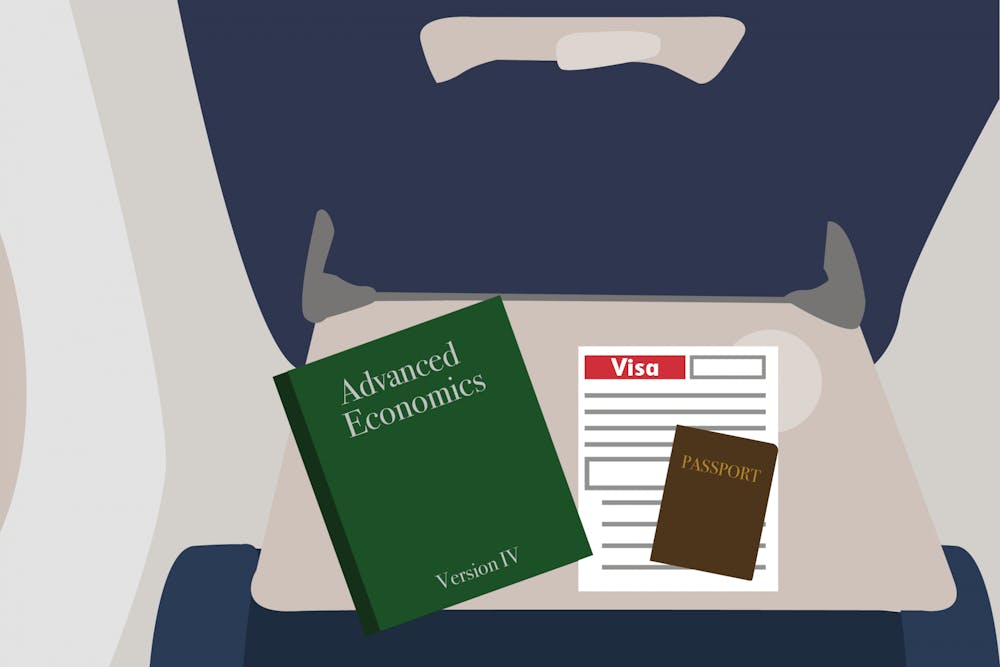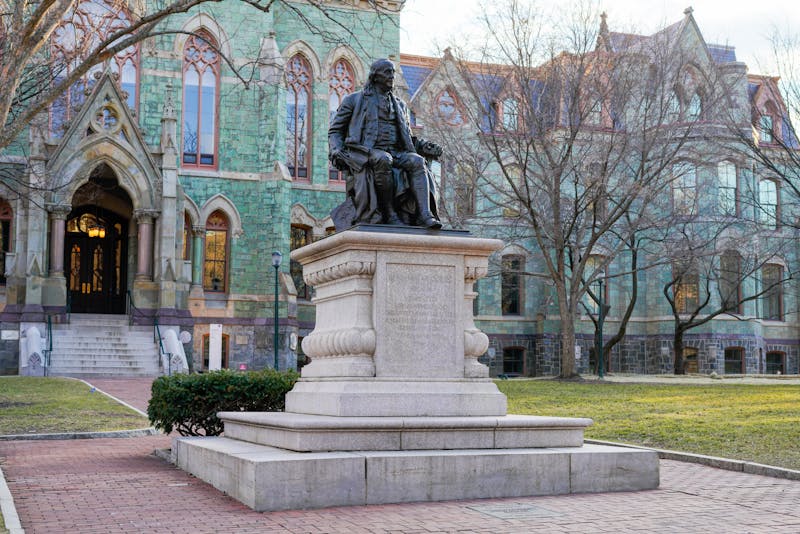
Students and professors praised Penn's decision to reclassify economics as a STEM major, applauding the flexibility it gives international students to obtain an extended work visa in the United States.
Penn became the last Ivy League institution to classify economics as a STEM major with Economics Department Undergraduate Chair Francis Diebold's email announcement to undergraduate students majoring in economics on Thursday. The reclassification, which will go into effect in spring 2021, will allow international students majoring in economics to apply for a two-year work extension in the U.S. under the Optional Practical Training Extension for STEM Students, while most student visas are only valid up to one year after graduation.
Some international students including College first-year Ishaani Basu felt forced to major in a STEM-designated field in order to take advantage of the STEM visa extension. Before the reclassification announcement, Basu planned to major in cognitive science in addition to economics, so she could be eligible for the OPT Extension for STEM Students.
"I was never actually interested in cognitive science, but the only reason I was considering a double major is because I would get a STEM major for the OPT, so I'm actually really relieved," she said. "Now, I can decide my double major based on my actual interests."
Basu said thanks to the major reclassification, she can now pursue other interests in non-STEM fields like psychology and international relations, and replace cognitive science major with one of those majors.
Diebold added that the visa extension for STEM majors would allow international students majoring in economics to be more competitive and flexible post-graduation and "level the playing field" for them.
“Many of the standard Penn job opportunities are things like two or three year training programs or analyst positions, which require upfront a multi-year commitment,” Diebold said.
Economics Senior Lecturer and Director of Macroeconomic Principles Luca Bossi agreed with the reclassification, pointing to the major's two-semester calculus, one-semester statistics, and one-semester econometrics requirements.
"There are peer programs within Penn that have been recognized as STEM and have made the conversion, in particular BEPP, Business Economics and Public Policy, and also Behavioral Economics, and also our sister major that is Mathematical Economics," he said. "Econ is, in my opinion, as rigorous as those, and it didn't make sense not to make it a STEM major."
Undergraduate Assembly President and College senior Mercedes Owens said the UA has been advocating for economics' classification as a STEM major since January 2018, after Yale University reclassified economics as STEM. Although Penn considered the change in 2018, the economics department elected not to pursue the reclassification, saying that students could major in mathematical economics if they wanted to study STEM.
“The Penn students should be pleased that we made every effort to come up with a STEM degree more than five years ago,” Former Economics Undergraduate Chair Holger Sieg wrote to the DP in February 2019. "Anybody who wants to study Economics and needs the STEM classification because of immigration-related issues, we recommend that they should get a degree in MathEcon."
College senior and UA College representative Edward Jiang, however, pointed to the fact that the mathematical economics major with 16 course units is more demanding than the economics major with 12 course units. Jiang, who is an international student, said he would not have been eligible for the two-year visa extension, because his schedule would not have been able to accommodate the mathematical economics major in addition to his political science major.
After Diebold replaced Sieg as the economics undergraduate chair on July 1, representatives from the UA, including Owens and Jiang, Undergraduate Economics Society, and the Economics Advisory Board, approached Diebold in September with their proposition to reclassify economics as STEM, hoping for better results with the new department chair.
“The undergraduate input was really helpful,” Diebold said. “It was really helpful in sort of opening my eyes and helping me to move things forward.”
Both Owens and Jiang praised Diebold's active role in advocating for the student leaders in conversation with higher level administrators and pushing forth this change over the course of just four months.
“I think it speaks to the [economics] department’s willingness to listen to some of the students,” Jiang said.
The Daily Pennsylvanian is an independent, student-run newspaper. Please consider making a donation to support the coverage that shapes the University. Your generosity ensures a future of strong journalism at Penn.
Donate






